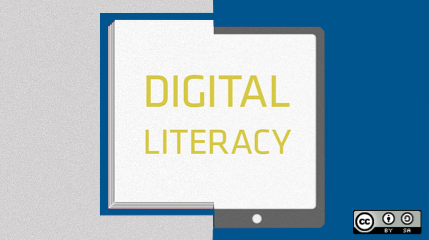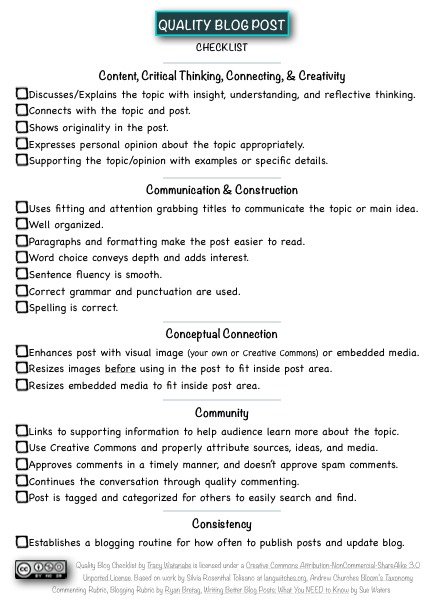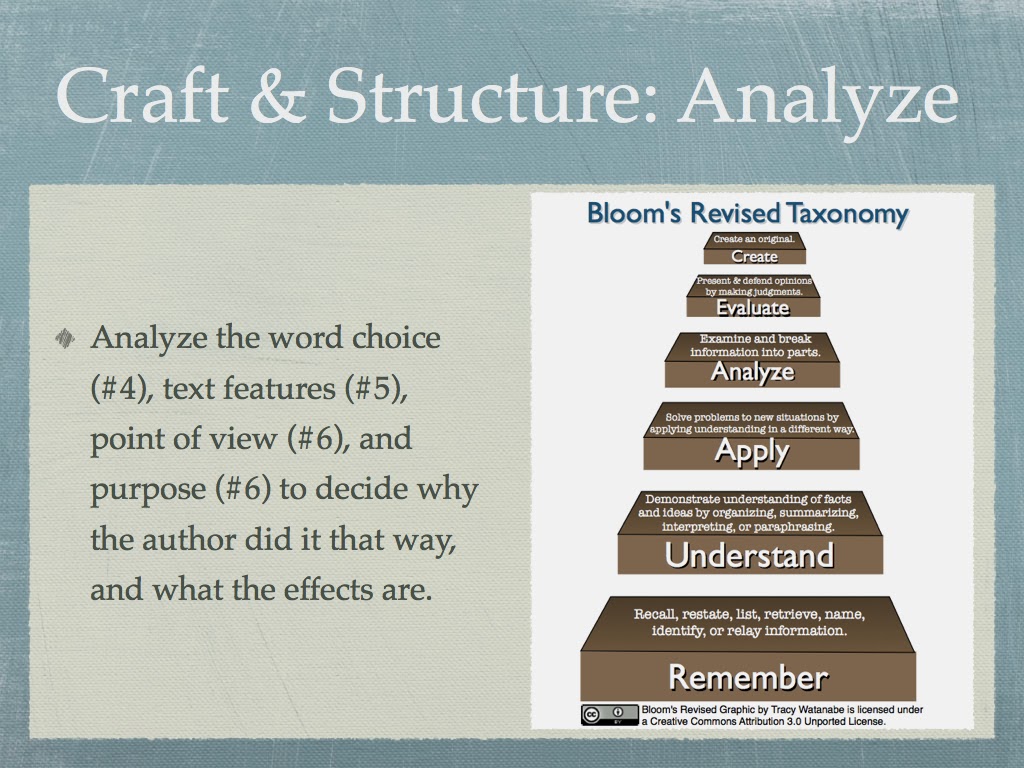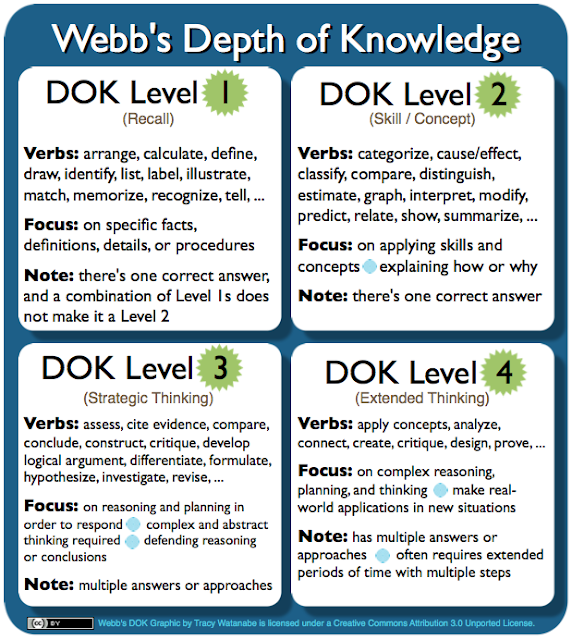21st Century Literacy, Communication, and Blogging
What does it mean to be literate? Traditionally, being literate meant the ability to read and write, a trademark of being educated. In essence, it meant the ability to communicate face-to-face and in writing.
The Internet has changed what it means to be literate because communication; writing; and how we retrieve, share, critically evaluate, and synthesize information includes digital fluency, which requires a new set of skills.
 |
| Originally adapted from: opensourceway via Compfight cc |
The development of this new skills set affects online reading comprehension and literacy (Coiro, 2007; Leu et al., 2005; Leu, Zawilinski, et al., 2007). Those who harness the power of the Internet have increased reading comprehension online relative to those who lack online reading skills regarding locating, critically evaluating, synthesizing, and communicating information (Coiro, 2011).
Therefore, we need to change how we teach literacy. Literacy must include sophisticated Internet searching techniques; evaluating the validity and reliability of the content; minding copyrights and giving proper attribution; communicating and collaborating with global audiences; and creating multimedia products.
Communication and conversation
Conversation builds language and literacy skills, requiring strong communication skills. Those skills include paraphrasing, asking clarifying questions, elaborating on main ideas, supporting ideas with examples, adding more information or challenging an idea, and synthesizing main points (Academic Conversations).
Communication skills can be used in online environments such as commenting on blogs. In the video below, Mrs. Yollis' third grade students share tips for writing quality comments:
These tips utilize strong communication skills to create quality written comments as a way to spark conversation and develop 21st century literacy.
Building literacy through blogging
Engaging in classroom blogging doesn't guarantee increased literacy; however, when students partake in ongoing academic conversations with diverse audiences for various purposes, then students reap the benefits of blogging.
Furthermore, it helps address some of the learning standards.
Created with Haiku Deck, the free presentation app
Blogging global collaborations
To take blogging beyond the four walls of the classroom and expand your audience and blogging experiences, try the Student Blogging Challenge or Quadblogging.
The Student Blogging Challenge is a free global collaboration that occurs in fall and spring for approximately ten weeks. Classrooms or individual students can sign up for the Challenge, and can choose which challenges to participate in. Miss W, the organizer of the Challenge, publishes a choice board of challenges or prompts around a topic each week suitable for all student ages and ranges of experience.
Quadblogging is when four classrooms agree to take turns having their blog as the spotlight class of the week, and the other three classrooms visit and leave comments. By the end of the month (or agreed amount of time), all four blogs have had their debut in the spotlight.
Writing across content isn't a new idea, but writing daily, collaborating and connecting with various audiences might be new for many. Giving your students an audience is motivating, it addresses several learning standards, and is well worth the effort.
Summary
The key ideas of this post were presented to our Principals, Education Services, and Superintendent earlier this month.
To take blogging beyond the four walls of the classroom and expand your audience and blogging experiences, try the Student Blogging Challenge or Quadblogging.
The Student Blogging Challenge is a free global collaboration that occurs in fall and spring for approximately ten weeks. Classrooms or individual students can sign up for the Challenge, and can choose which challenges to participate in. Miss W, the organizer of the Challenge, publishes a choice board of challenges or prompts around a topic each week suitable for all student ages and ranges of experience.
Quadblogging is when four classrooms agree to take turns having their blog as the spotlight class of the week, and the other three classrooms visit and leave comments. By the end of the month (or agreed amount of time), all four blogs have had their debut in the spotlight.
Writing across content isn't a new idea, but writing daily, collaborating and connecting with various audiences might be new for many. Giving your students an audience is motivating, it addresses several learning standards, and is well worth the effort.
Summary
The key ideas of this post were presented to our Principals, Education Services, and Superintendent earlier this month.
Final thoughts
Silvia Rosenthal Tolisano (Langwitches) wrote a fabulous post exploring making thinking visible through blogging. Below is one of her graphics from that post:
Focusing on adding value to the author's writing requires critical thinking and great communication skills. It requires supporting claims with evidence and 21st century literacy -- which includes reading; retrieving information; critically evaluating the information; synthesizing ideas from multiple sources; minding copyrights and giving proper attribution; and sharing the information through writing, discussion, and/or multimedia.
| Visible Thinking Routines by Silvia Rosenthal Tolisano & Claire Arcenas. CC License: BY NC SA |
Focusing on adding value to the author's writing requires critical thinking and great communication skills. It requires supporting claims with evidence and 21st century literacy -- which includes reading; retrieving information; critically evaluating the information; synthesizing ideas from multiple sources; minding copyrights and giving proper attribution; and sharing the information through writing, discussion, and/or multimedia.
The bottom line is 21st century literacy requires a new set of skills and it's about time we start embracing and teaching those skills.
- How do you help your students and other educators adopt and embrace 21st century literacy?
- How does blogging (or any collaborative tool) help build 21st century literacy? (and when does it not?)
- What other thoughts do you want to add to this discussion?



Comments
Post a Comment
Directions for posting:
1) Choose "Comment As" first. If you don't have a Google/Blogger account, you can choose Name/URL and type in your name, then place the web site that best describes you in the URL (i.e. www.ajusd.org). Or, you can choose "Anonymous".
2) You may need to press "Post Comment" more than one time.
It is always wise to copy your comment before pressing "Post Comment" just in case something happens.
3) Type in the word verification.
4) If you did everything correctly, it will state, "Your comment has been saved and will be visible after blog owner approval." If you do not get that message, please try again.
Click here for a tutorial on how to comment.
Thank you!